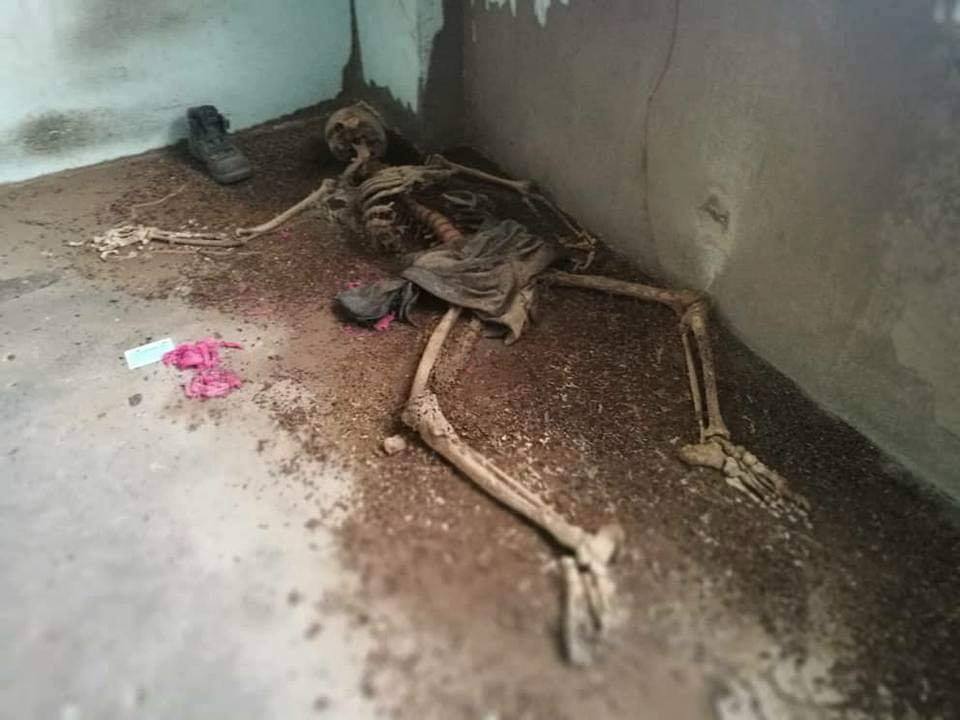A man was discovered to have kept the decomposing body of his deceased mother in their home for three months. This unsettling episode, which came to light in October 2024, has not only raised concerns about mental health and isolation but has also drawn attention to the social fabric of communities in India, particularly in rural and semi-urban areas where family structures and societal bonds are fraying.
The Discovery
The incident occurred in the town of Amguri in the Sivasagar district of Assam. The man, identified as Babul Hazarika, had been living with his elderly mother, Pushpabala Hazarika, until her death in July 2024. According to local reports, Pushpabala had passed away at home due to natural causes. However, instead of arranging for a proper funeral, Babul chose to preserve her body in their house. It wasn’t until concerned neighbors, noticing the foul smell emanating from the home and Babul’s increasingly reclusive behavior, informed the local authorities that the gruesome discovery was made.
When the police arrived at the residence, they were met with a deeply disturbing sight. The body, in an advanced stage of decomposition, was lying in one of the rooms, covered in a cloth. Babul was reportedly reluctant to let the authorities enter and appeared to be in a fragile mental state, which made the situation all the more tragic. Following the discovery, the body was sent for an autopsy, and Babul was taken into custody for questioning.
A Case of Mental Health Crisis?
While the incident has left the community in shock, it has also raised poignant questions about Babul’s mental health. Initial investigations suggest that Babul had been suffering from severe depression, exacerbated by his mother’s death and the absence of close family or friends to offer support. It is believed that Babul’s grief over losing his only companion led him to an irrational denial of her death. He reportedly believed that his mother might somehow return to life, which is why he didn’t arrange for her cremation.
This is not the first time such an incident has occurred in India. In recent years, similar cases have been reported in other states, including West Bengal and Maharashtra, where individuals have kept the bodies of loved ones in their homes for days, weeks, or even months. These cases, while shocking, often highlight a deeper issue of loneliness and a lack of access to mental health resources.
The Social Fabric of Isolation
In a country like India, where the joint family system traditionally offered emotional and social support, the rise in nuclear families and the migration of young people to urban centers has left many elderly individuals in rural areas isolated. This isolation can have a profound impact on mental health, particularly for those who are already vulnerable. Babul Hazarika’s case may be one such tragic example of how the breakdown of traditional family structures and the absence of a strong community network can lead to devastating consequences.
The local community in Amguri expressed their shock and sadness over the incident. Neighbors mentioned that Babul had become increasingly withdrawn in recent months, rarely interacting with anyone outside his home. “We thought something was wrong, but we never imagined it would be this serious,” said a local resident. “He was very close to his mother, and after she stopped coming out of the house, we assumed she was unwell. We never thought she had passed away.”
The Role of Authorities and Mental Health Support
This tragic incident underscores the urgent need for mental health awareness and support, especially in rural and semi-urban areas. Assam, like many other states in India, has limited mental health resources, and cases like Babul’s highlight the gap between the need for psychological care and its availability. While urban centers have seen a gradual increase in mental health services, smaller towns and villages often lack the necessary infrastructure to identify and address mental health issues at an early stage.
Mental health experts have called for more proactive efforts in creating awareness and providing mental health care in underserved areas. This includes training community health workers to recognize signs of depression and other mental health disorders, as well as establishing helplines and support groups for those in need.
The case of Babul Hazarika and his deceased mother is a heartbreaking reminder of the human cost of isolation and untreated mental health issues. As the investigation continues, it is hoped that this incident will lead to more comprehensive efforts to provide mental health care and support to those in rural areas, ensuring that such tragedies can be prevented in the future. The story serves as a sobering reflection on the fragility of human connections and the importance of addressing mental health with the same urgency as physical well-being.

